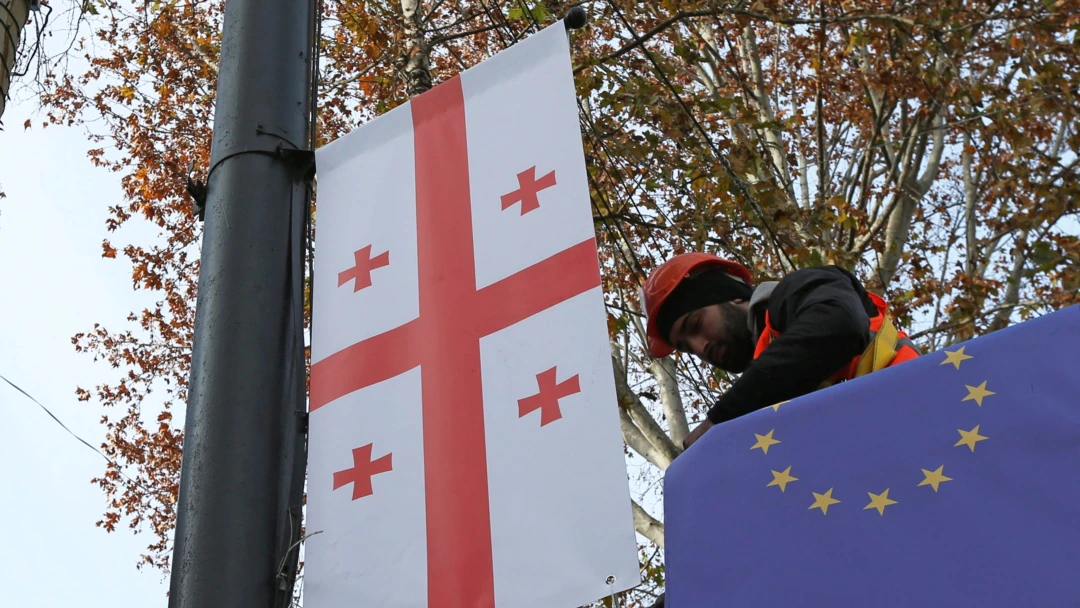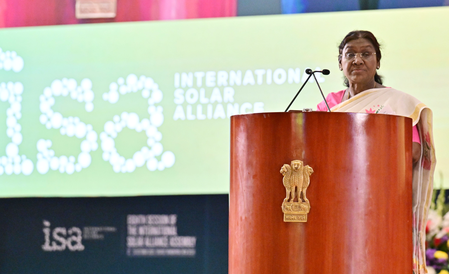Copyright rferl

Georgia’s government has reacted angrily to a critical assessment from the European Union over the country’s backsliding on democratic reforms on the way to joining the bloc, accusing Brussels of interfering in domestic affairs. In presenting a scathing annual report on progress toward accession, EU foreign policy chief Kaja Kallas said Georgia has "no viable path to the EU at this stage unless conditions change dramatically." Specifically, the report blames the situation on Georgian government policies -- namely a crackdown on political opponents and a policy shift that appears slanted toward Moscow -- that have undermined relations with the 27-member bloc. Accusations Of Blackmail Georgian parliamentary speaker Shalva Papuashvili accused the bloc of "blackmail," saying that and "pressure on Georgia do not work." “A bureaucracy imbued with a hidden political agenda, an arrogant attitude, and disrespect for all countries that do not display blind obedience, attempting to make independent decisions and exercise the sovereign right to govern the state,” Papuashvili added. The annual progress report for the 10 candidate countries acts as a weigh station for governments as they look to bring laws, finances, and policies in line with the bloc. In all there are 33 policy chapters that EU hopefuls -- currently Albania, Bosnia-Herzegovina, Georgia, Kosovo, Moldova, Montenegro, North Macedonia, Serbia, Turkey, and Ukraine -- need to fulfill before joining the bloc. The 2025 report lauded several candidates and dangled the carrot of possibly joining the bloc as early as 2030 if reforms remain on track. Georgia, however, was accused of "serious democratic backsliding" in the EU enlargement report. Once seen as one of the most democratic and pro-Western countries to emerge from the Soviet Union, Georgia has been accused of growing increasingly authoritarian, while adopting what many -- including Brussels -- see as Russia-friendly policies. Georgia's Anti-Democratic Turn Georgia’s relationship with the EU in particular has deteriorated since Tbilisi adopted anti-LGBT legislation and a so-called “foreign agents” law last year, when the EU halted accession talks. Tensions deepened further after parliamentary elections in October 2024, in which the Georgian Dream party held on to power, froze talks on Georgia's accession to the European Union, and accused the bloc of trying to plot a coup in Tbilisi. The Georgian Foreign Ministry echoed those sentiments, saying in a statement late on November 4 that the Georgian government “condemns all attempts directed toward using the issue of EU accession as a political instrument.” The statement add that the government is "well-functioning" with the country having a "stable macro-economic environment and high economic growth," thus raising "serious questions regarding the objectivity of assessments given in the commission’s report. Georgian Dream claims that it still wants to join the European Union, but only if it can preserve what it says are Georgia's traditional Orthodox Christian values as well as "peaceful" ties with Russia. Gigi Gigiadze, a senior fellow at the Economic Policy Research Center, a Tbilisi-based think tank, and Georgia's former ambassador to Denmark and Iceland, told RFE/RL that the situation may spark further protests given EU accession is supported by most Georgians, as well as sanctions against Tbilisi. “Time is working against all of us, against the Georgian people,” he said.



